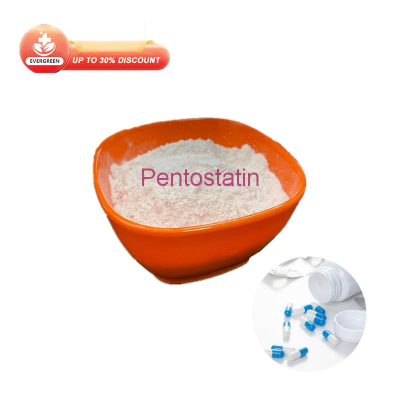-
Categories
-
Pharmaceutical Intermediates
-
Active Pharmaceutical Ingredients
-
Food Additives
- Industrial Coatings
- Agrochemicals
- Dyes and Pigments
- Surfactant
- Flavors and Fragrances
- Chemical Reagents
- Catalyst and Auxiliary
- Natural Products
- Inorganic Chemistry
-
Organic Chemistry
-
Biochemical Engineering
- Analytical Chemistry
- Cosmetic Ingredient
-
Pharmaceutical Intermediates
Promotion
ECHEMI Mall
Wholesale
Weekly Price
Exhibition
News
-
Trade Service
Nasopharyngeal carcinoma is a malignant tumor that occurs in the head and neck, originating from the epithelial cells of the nasopharyngeal area
.
The main treatment strategy for nasopharyngeal carcinoma is radiotherapy with or without chemotherapy
Nasopharyngeal carcinoma is a malignant tumor that occurs in the head and neck, originating from the epithelial cells of the nasopharyngeal area
Finally, 21 articles were screened out, 17 of which had a sample size greater than 10, and were included in the meta-analysis
.
10 articles provide detailed survival data
Finally, 21 articles were screened out, 17 of which had a sample size greater than 10, and were included in the meta-analysis
The 2-year OS, 5-year OS, and 2-year DFS of rNPC patients with or without adjuvant therapy after surgery were 71% (95% CI, 62%-80%, I 2 = 83.
Surgical treatment prognosis
Surgical treatment prognosisIn the subgroup analysis, the 2-year OS rate of patients undergoing surgery alone (72%, 95% CI, 61%-83%, I 2 = 86.
3%, p <0.
05) was better than surgery + adjuvant therapy patients (64% , 95% CI, 55%-73%, I 2 = 0.
00%, p = 0.
641)
.
The 5-year OS rate in the postoperative adjuvant therapy group was 44% (95% CI, 35%-52%, I 2 = 0.
In the subgroup analysis, the 2-year OS rate of patients undergoing surgery alone (72%, 95% CI, 61%-83%, I 2 = 86.
Subgroup analysis
Subgroup analysisThe study further compared patients treated with surgery alone.
The 5-year OS in the open surgery group was 77.
0%, the endoscopic surgery group was 82.
5% (p>0.
05); the 2-year DFS in the open surgery group was 85.
0%, and the endoscopic surgery group was 2 years The DFS is 72.
5% (p>0.
05)
.
For patients undergoing open surgery, the 5-year OS rate of postoperative adjuvant therapy patients was 35.
The study further compared patients treated with surgery alone.
Resection margin status, recurrence T stage, and adjuvant therapy affect the survival and prognosis of patients
Prognostic factors
Prognostic related factors Prognostic related factorsIn summary, this meta-analysis shows that salvage surgery for patients with recurrent nasopharyngeal cancer is beneficial to survival
.
Accurate assessment of tumor recurrence and staging and selection of appropriate surgical methods are the keys to success
In summary, this meta-analysis shows that salvage surgery for patients with recurrent nasopharyngeal cancer is beneficial to survival
.
Accurate assessment of tumor recurrence and staging and selection of appropriate surgical methods are the keys to success
.
More randomized controlled studies are needed in the later period to further confirm
.
The meta-analysis showed that salvage surgery for patients with recurrent nasopharyngeal cancer is beneficial to survival
.
Accurate assessment of tumor recurrence and staging and selection of appropriate surgical methods are the keys to success
.
More randomized controlled studies are needed in the later period to further confirm
.
The meta-analysis showed that salvage surgery for patients with recurrent nasopharyngeal cancer is beneficial to survival
.
Accurate assessment of tumor recurrence and staging and selection of appropriate surgical methods are the keys to success
.
More randomized controlled studies are needed in the later period to further confirm
.
Original source:
Original source:Feng Y, Dai Z, Yan R, Li F, Zhong X, Ye H, Chen C, Fan S, Qing C, Pan Y and Sun H (2021) Outcomes of Recurrent Nasopharyngeal Carcinoma Patients Treated With Salvage Surgery: A Meta-Analysis .
Front.
Oncol.
11:720418.
doi: 10.
3389/fonc.
2021.
720418
Front.
Oncol.
11:720418.
doi: 10.
3389/fonc.
2021.
720418 Leave a message here







